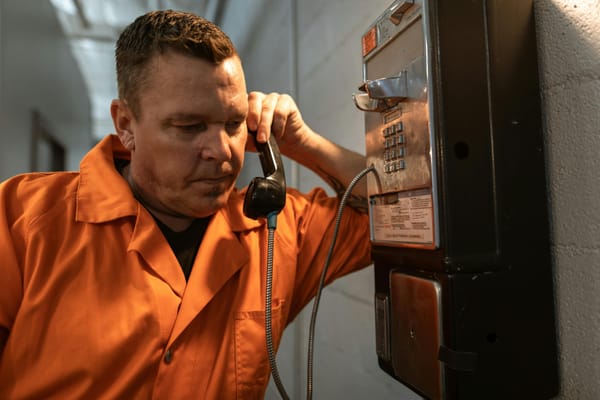House Lawmakers Praise, Question FCC’s Broadband Plan
WASHINGTON, March 26, 2010 – The Federal Communication Commission’s National Broadband Plan is an ambitious blueprint for the country’s future containing lofty goals and pragmatic solutions, and implementing it will require action from the agency and lawmakers, experts said Thursday at a hearing on
WASHINGTON, March 26, 2010 – The Federal Communication Commission’s National Broadband Plan is an ambitious blueprint for the country’s future containing lofty goals and pragmatic solutions, and implementing it will require action from the agency and lawmakers, experts said Thursday.
FCC commissioners and representatives on the House Energy and Commerce Communications Subcommittee discussed the plan during a Thursday hearing that was quickly convened following halted committee actions in the wake of health care debate.
Subcommittee Chairman Rick Boucher (D-Va.) lamented the U.S. drop in international rankings for broadband penetration and speed, but hailed the plan as a way to halt the nation’s slide.
“We simply must do better,” Boucher said, referring to America’s global competitiveness.
The senior Republican on the committee, Rep. Cliff Stearns of Florida, cautioned of “old regulatory ideas” and expressed concern over network neutrality rules being considered by the commission.
However, he said the goals of the plan are “encouraging.”
The United States should focus on what has worked well over the past few years in a free market approach, Stearns said, adding that broadband is available to 95 percent of American homes and the FCC should focus on the unserved 5 percent.
“If we’re going to subsidize broadband…concentrating on those homes makes sense,” he said.
The plan is the “most significant infrastructure program since the interstate highway system,” said Rep. Henry Waxman, D-Calif.
The future of the country depends on meeting the core objectives of the plan, he said. But implementing the plan will require input from the FCC, Congress and the Executive Branch, Waxman said, calling that input from multiple government stakeholders “the hard part.”
Additionally, the lack of wireless spectrum addressed in the plan is a “looming problem,” Waxman said, adding that ideas for finding more spectrum deserve “our serious consideration.”
But the outcome of Comcast’s challenge to the FCC’s authority over broadband services will have “serious implications” on the commission’s ability to protect consumers and implement the plan, Waxman warned.
Even a staunch foe of FCC regulation like Rep. Joe Barton of Texas, the full committee’s ranking Republican, had praise for the plan’s ambition and detail.
“If you have to have a federal broadband plan, you all have done about as good a job as can be done,” he told FCC Chairman Julius Genachowski, who came before the subcommittee to explain and defend the plan.
“Broadband is the indispensable infrastructure of the digital age – the 21st Century equivalent of what canals, railroads, highways, the telephone and electricity were for previous generations,” Genachowski said.
But the United States must work hard to “seize the opportunities of broadband,” he said, because “the status quo is not good enough.”
And with 14 million Americans lacking access to broadband, Genachowski told the subcommittee that the United States “will not succeed by standing still, or even moving at our current pace.”
The plan is “non-ideological” and “non-partisan,” Genachowski said. It’s the “outcome of an extraordinary process that has been unprecedented in many respects: unprecedented in its openness and transparency.”
He called it a “plan for action, and a call to action” and said “in the 21st century digital economy, to stand still is to fall behind.”
The “good news” about the plan, Barton said, is that it brings up “things that need to be said,” including reform of the Universal Service Fund, which aims to bring communications services to all Americans.
But reclassifying the term “broadband” under Title II of the Communications Act, represents the “worst idea I’ve heard in years,” Barton scolded the commissioners. “I don’t want to regulate broadband like we regulated telephone service in the 1930s.”
And while acknowledging Waxman was right that the nation needed the interstate highway system, Barton criticized many aspects of the plan as “trying to fix things that aren’t broke” and giving the FCC something to do. “We don’t need to reinvent the wheel,” Barton said.
The plan has good ideas for promoting adoption and fixing the high cost part of the USF, said Rep. John Dingell (D-Mich.) – a longtime player in telecommunications policy. But any attempt to improve wireless capability by finding or auctioning new spectrum would require a spectrum map – “a necessary predicate” for any congressional grant of authority.
Congress is the “sole progenitor” for all FCC authority, he said, quoting former House speaker Sam Rayburn. But in implementing the plan, Dingell told the commissioners that the FCC must focus on making broadband available to all rather than “restarting old policy fights.”
Other members expressed concern that the plan lacked enough protections for intellectual property. Rep. Marsha Blackburn (R-Tenn.) called the broadband plan’s efforts “pretty toothless” and asked for “more heft” in the commission’s IP policy as it implements the plan.
Blackburn told Genachowski that his attempt to “punt” on IP was “troubling,” and suggested to Commissioner Robert McDowell that not having IP protections “is something worthy of a revisit.”
Genachowski and colleagues responded that theirs is not the expert agency for intellectual property concerns, though they acknowledged there was room to add enforcement in developing network management policies. Genachowski was adamant that those policies would not be implemented without “a robust, open, participatory process.”










